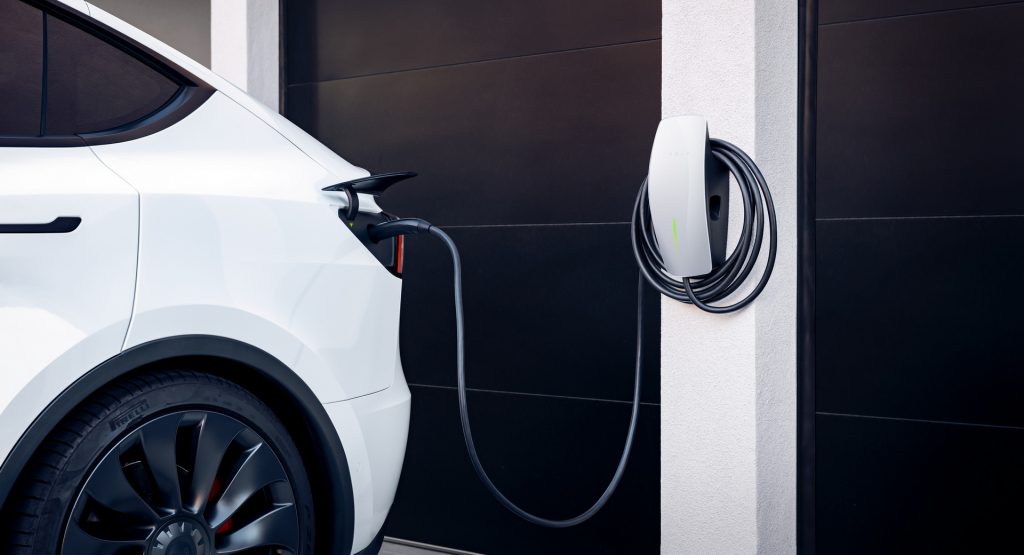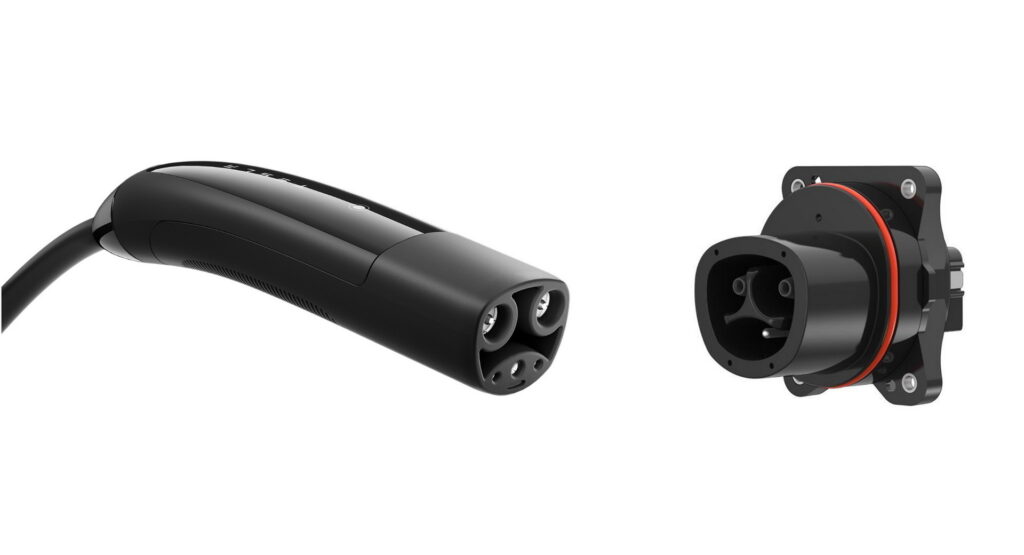Kentucky just walked around Texas and Washington State to become the first in the union to require Tesla’s North American Charging Standard plug on all government-funded charging projects. The move comes at a time when support for NACS is swelling beyond previous predictions. It should improve EV infrastructure for multiple vehicle brands too.
NACS was almost a Tesla-exclusive plug style until very recently. Its rival, the Combined Charging System (CCS) style plug, is used on most other electric vehicles and in other countries. Now, Kentucky requires that all future state-backed charging infrastructure include both NACS and CCS (federally mandated), which makes it so that almost any EV can roll up and juice up.
Documents related to the state’s EV charging program specifically say that “Each port must be equipped with an SAE CCS 1 connector. Each port shall also be capable of connecting to and charging vehicles equipped with charging ports compliant with the North American Charging Standard (NACS).”
Read: Lucid Boss Has Concerns About Tesla’s Charging Plug Becoming The New Standard

It’s worth noting that over the last few months, a groundswell of support for NACS has arisen. Multiple automakers including Ford, Rivian, Polestar, Volkswagen, and General Motors have all agreed to adopt the plug style after years of sticking to CCS. Then, in late June, Texas and Washington State stated that in the future, they too could require NACS compatibility at state-funded charging stations.
“The decision by Ford, GM, and now Rivian to adopt NACS changed requirements for Phase 1″ of the rollout, the Texas Department of Transportation said in an email to Reuters. It went even further though to confirm that future DC fast chargers will have one of each type of plug.
Washington State hasn’t gone as far but has confirmed that it’s considering whether or not to include the NACS plug on similar projects. Now that Kentucky has beat everyone else to the punch we expect to see other states follow suit. These moves should make the future of EV charging less stressful for all parties.





